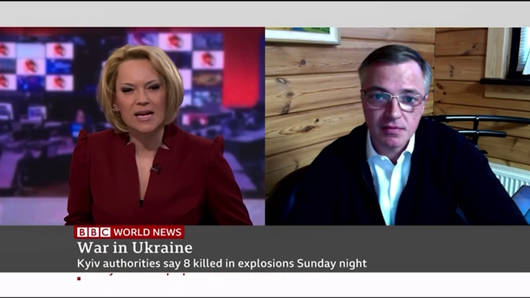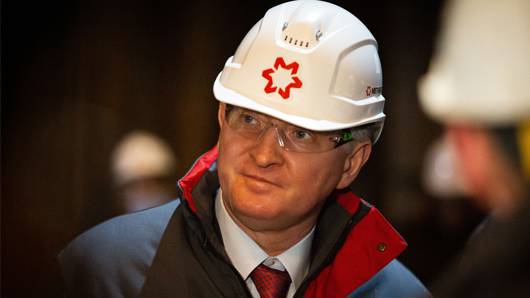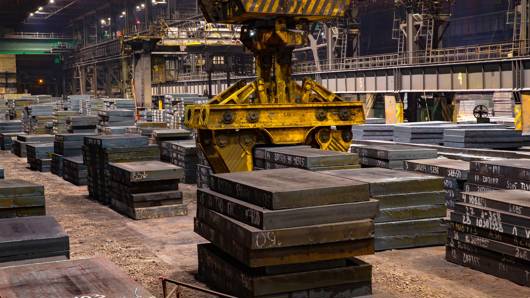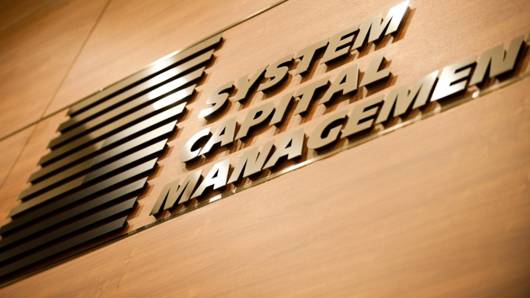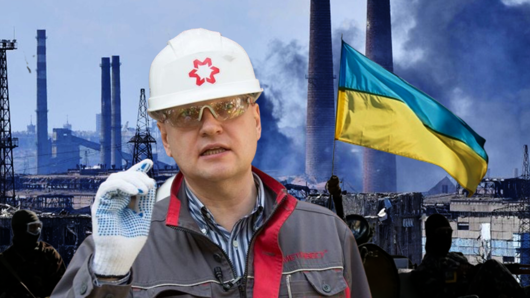The Chief Legal Officer (CLO) of Metinvest Group, Svitlana Romanova, answered questions about the illegal shipment of Ukrainian steel from the port of Mariupol in an interview aired on Ukraine 24 TV. The Group's CLO also shared her thoughts on the unlawful actions of the occupying forces and their strategy of economic exhaustion.
– The head of the self-proclaimed Donetsk People's Republic said that the power supply to the port of Mariupol will be restored in a matter of days and that the port will supposedly operate at full capacity. This means that it is very likely that all of the steel and grain will shortly be shipped out of Mariupol. Three shiploads have been shipped so far. Experts say that the theft of Ukrainian steel and grain will only ramp up. What does a business do to counter this theft, in particular, the theft of steel?
– Our business has definitely not been standing idly by. It has been taking specific actions. To date, the owners of this steel – our Azovstal, Ilyich Steel, and Zaporizhstal assets – have already filed a number of criminal complaints with the police and the Security Service of Ukraine in Donetsk region. These criminal cases have been already registered and set in motion. We are gathering evidence and preparing to track this steel.
We already know for certain that the first cargo was shipped aboard the sanctioned vessel Grand Prix, which is owned by a company from Rostov that previously operated out of Crimea. That shipment was followed by two more trips. Indeed, it was announced that the port would be fully operational after power and water supplies were restored. As far as I know, power has been restored, and preparations are underway to resume full port operations, as announced by [Marat] Husnullin, deputy prime minister of the Russian Federation.
We are also working to obtain satellite-based evidence. We are using special programs to track the movement of commercial vessels in the Azov Sea area. We are working with lawyers, including foreign colleagues, to develop preventive actions that we can take to stop this theft.
We have approached the Cabinet of Ministers with a proposal to impose sanctions on all of the entities involved. We have informed our clients that other people might offer to sell them our stolen steel. We are also trying to cooperate with international associations to block any trade in our steel and sales to potential customers in Africa, Asia, and, of course, the EU.
– Is there an understanding of the timeline yet? What has been the preliminary reaction and mood of the people you are working with?
– All of us are absolutely on the same page, it is definitely theft, and such actions are certainly classified as war crimes. They are war crimes in accordance with the Rome Statute of the International Criminal Court, which clearly states that any offence against property, any theft, any destruction of property during hostilities, not justified by military necessity, is a war crime.
As such, what is happening now is more than plain theft, it is a war crime, and it is a criminal act on the level of the international law. The international community, our clients and the people we have been talking to all see things in the same way. I hope that Ukraine's partners, primarily Turkey, that control the Bosporus and other exits from the Black Sea, will help us in our efforts to counter the unlawful export of our steel through the Black Sea and the Bosporus and onwards to seaports all around the world. We are receiving a lot of support, but, you are right, this is not a quick process.
They are war crimes in accordance with the Rome Statute of the International Criminal Court, which clearly states that any offence against property, any theft, any destruction of property during hostilities, not justified by military necessity, is a war crime.
– When it comes to understanding such actions, do you think they are part of a deliberate strategy undertaken by the Russian Federation or just uncivilised actions?
– I will express my personal opinion. In a nutshell, my answer is yes and no. It is both a strategy and not a strategy at the same time. To start with, I do not think that it is a strategy, since it is just plain theft. Russia is a country of criminals, we have seen this in the actions of Russian soldiers who have looted apartments.
The Russian Federation has engaged in looting at a national level. In doing so, they are not ashamed; they boast of their successes on federal television channels and talk about their victories in the seizure and nationalisation of other people's property. So, on the one hand, it is just plain theft, plain profiteering, a plain offence against other people's property, and a plain desire to become rich at the expense of others.
On the other hand, I think that the seizure of steel, grain, and other property from the occupied territories constitutes a certain strategy, since war is not only fought on the battlefield and not only with weapons. At the end of the day, war is fought on the economic front, so the Russian Federation's main task is probably to get rid of its competitor. Getting rid of its competitor on the grain market, taking down its competitor on the tough steel market. Russian producers of steel products have historically been Metinvest's primary competitors.
So, it is strategically reasonable to assume that the main aim is to destroy not only Ukraine's statehood but also its economy, given that it is a strong competitor on certain markets. We are primarily strong players and known in the world because of steel, which is used to build skyscrapers, ships, and many infrastructure projects around the world. And, of, course, because of grain, which is sold all over the world and supplied to many countries. Russia's strategy is blackmail. Blackmail using hunger, gas blackmail. This is my personal opinion. I think it is reasonable to assume that it is a strategy designed to cripple Ukraine's economy.
The Russian Federation has engaged in looting at a national level.
– Svitlana, you said it was important for Turkey, as a guarantor of security in the Bosporus, to track what the Russian Federation takes out. When Russia takes steel back to their country, are there any tools to track what happens to this steel afterwards? Is it sent for processing or supplied to the domestic market – and how to keep track of it in this case and hold those involved liable?
– Unfortunately, we have minimal points of leverage to influence and track the developments in such a scenario. It is possible only by means of very powerful and expensive means, like satellite communication and satellite images.
As we do not have access to documents and information evidencing the subsequent movement of the cargo inside the Russian Federation, it is unlikely that we will be able to track the steel if it is taken to and used in Russia. That is one side of things. On the other side, I think greed will prevail, and they will try to sell our steel on the global market given the higher prices and payment in hard currency. It is a better deal compared to local consumption, given that the local market is well-supplied with domestic steel products.
So, the local consumption scenario is probable. However, it seems to me that they will move it further and attempt to sell it to unscrupulous clients in Asia and Africa willing to buy the product at a discounted price, which is very likely under the circumstances.
Read about the current situation at Metinvest Group companies on a special long-read. Information is updated 24/7. Bookmark and share with friends. Keep calm and trust only official sources.






